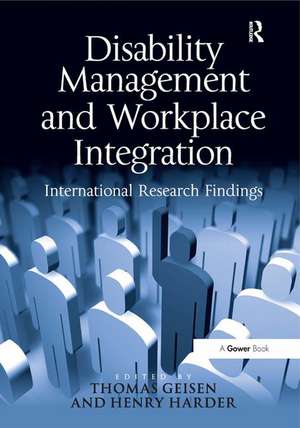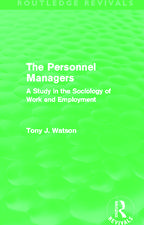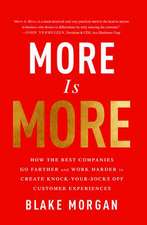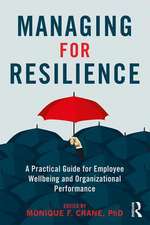Disability Management and Workplace Integration: International Research Findings
Autor Henry G. Harder Editat de Thomas Geisenen Limba Engleză Hardback – 16 dec 2011
| Toate formatele și edițiile | Preț | Express |
|---|---|---|
| Paperback (1) | 324.16 lei 6-8 săpt. | |
| Taylor & Francis – 11 oct 2016 | 324.16 lei 6-8 săpt. | |
| Hardback (1) | 824.80 lei 6-8 săpt. | |
| Taylor & Francis – 16 dec 2011 | 824.80 lei 6-8 săpt. |
Preț: 824.80 lei
Preț vechi: 1105.63 lei
-25% Nou
Puncte Express: 1237
Preț estimativ în valută:
157.85€ • 164.45$ • 131.24£
157.85€ • 164.45$ • 131.24£
Carte tipărită la comandă
Livrare economică 10-24 februarie 25
Preluare comenzi: 021 569.72.76
Specificații
ISBN-13: 9781409418887
ISBN-10: 140941888X
Pagini: 268
Ilustrații: Includes 14 b&w illustrations
Dimensiuni: 174 x 246 x 23 mm
Greutate: 0.73 kg
Ediția:New ed
Editura: Taylor & Francis
Colecția Routledge
Locul publicării:Oxford, United Kingdom
ISBN-10: 140941888X
Pagini: 268
Ilustrații: Includes 14 b&w illustrations
Dimensiuni: 174 x 246 x 23 mm
Greutate: 0.73 kg
Ediția:New ed
Editura: Taylor & Francis
Colecția Routledge
Locul publicării:Oxford, United Kingdom
Notă biografică
Dr Thomas Geisen is a senior researcher and lecturer at the University of Applied Sciences Northwestern Switzerland, in Olten. His research interests are in workplace integration and migration. He runs a further education programme in disability management, has carried out substantial research projects, and is a widely published author. Dr Henry G. Harder is Professor and Chair of the School of Health Sciences at the University of Northern British Columbia. His research interests are in disability, workplace mental health, suicide and aboriginal health. He is an active scholar, who has published extensively and made presentations throughout the world.
Recenzii
'The international recommended authors describe the global success-factors in return-to-work of ill workers answering the multi-disciplinary question: "Who must manage interventions when, how and with whom?" Focusing on abilities, the authors offer recommendations for single cases with frequent diagnosis, including mental illnesses, and for consensus-based structure inside and outside of enterprises. This book attracts attention to all stakeholders interested in strengthening work-force: Governments, employers, employees, insurers and service providers, who guide people with disabilities back to working-life.' Friedrich Mehrhoff, Dr jur. Deutsche Gesetzliche Unfallversicherung (DGUV) 'The articles in Disability Management and Workplace Integration are of great relevance to the ILO in its work to promote employment opportunities for persons with disabilities in line with international conventions and the International Labour Office code of practice on managing disability in the workplace. The emphasis on 'employer buy-in' as an area that requires greater policy focus is timely and will make a marked difference to policies of countries moving to implement the UN Convention on the Rights of Persons with Disabilities and other international standards.' Barbara Murray, Senior Specialist, International Labour Office 'Disability management is increasingly being more broadly recognized as an imperative feature in effective efforts at retention of workers affected by illness or an accident that result in needed time away from work. Harder and Geisen have provided us with a broad view of these approaches from an international perspective, affording a truly unique perspective on disability management and its resulting longer term workplace benefits.' Susanne M. Bruyère, Professor of Disability Studies, Cornell University, USA
Cuprins
Chapter 1 Disability Management, HENRY G. HARDER, THOMAS GEISEN; Part I Theory and Empirical Research in Disability Management Practice; Chapter 2 Workplace Disability Management as an Instrument for Human Resources and Organizational Development, THOMAS GEISEN; Chapter 3 Using Action Research to Develop Effective Disability Management Programs, CHRISTINE RANDALL, NICHOLAS BUYS; Chapter 4 The Role of Workplace Social Support in Disability Management, GREGORY C. MURPHY, MARY A. O’HARE; Chapter 5 Changes in Managing Disability in the Workplace in Germany, DÖRTE BERNHARD, MATHILDE NIEHAUS, BRITTA MARFELS; Chapter 6 Human Rights and Duty to Accommodate in Employment, DANIEL HUANG, SHANNON L. WAGNER, HENRY G. HARDER; Chapter 7 How to Deal with Disability-Related Diversity, STEPHAN A. BÖHM, DAVID J.G. DWERTMANN, MIRIAM K. BAUMGÄRTNER; Part II Disability Management in Various Countries; Chapter 8 The Development of Disability Management in China, GNATIUS TAK SUN YU, DAN TANG, K.K. CHAN, F.K. IP, KAREN Y.L. LO-HUI; Chapter 9 A Framework for Success, ALISON ANGLETON; Chapter 10 Disability Management, MARTHE VERJANS, AN ROMMEL, ELIZABETH TIJTGAT, KATRIEN BRUYNINX; Chapter 11 Workplace Disability Management, THOMAS GEISEN, ANNETTE LICHTENAUER, CHRISTOPHE ROULIN, GEORG SCHIELKE; Chapter 12 European Perspectives on Disability Management (1999–2009), DONAL F. MCANANEY; Part III Illness, Rehabilitation and Disability Management; Chapter 13 Occupational Integration Management at the Enzensberg Clinic, JOACHIM MAIER, GISELA RIEDL; Chapter 14 Disability Management of Orthopaedic Disorders, LUTZ TROWITZSCH, DÉSIRÉE HERBOLD, BERNHARD KOCH, BIRGIT-CHRISTIANE LEINEWEBER; Chapter 15 Occupational Stress and Mental Illness, SHANNON L. WAGNER; Chapter 16 Type 2 Diabetes in the Workplace, MAMDOUH SHUBAIR;
Descriere
Disability Management and Workplace Integration considers the development of disability management over the last three decades in different countries. It looks at the ongoing debate about methodology and implementation of disability management strategies and programmes, highlighting the critical debate about the implications of a stricter cost-benefit approach to social work theory and practice.





















